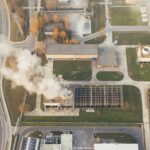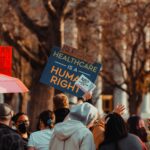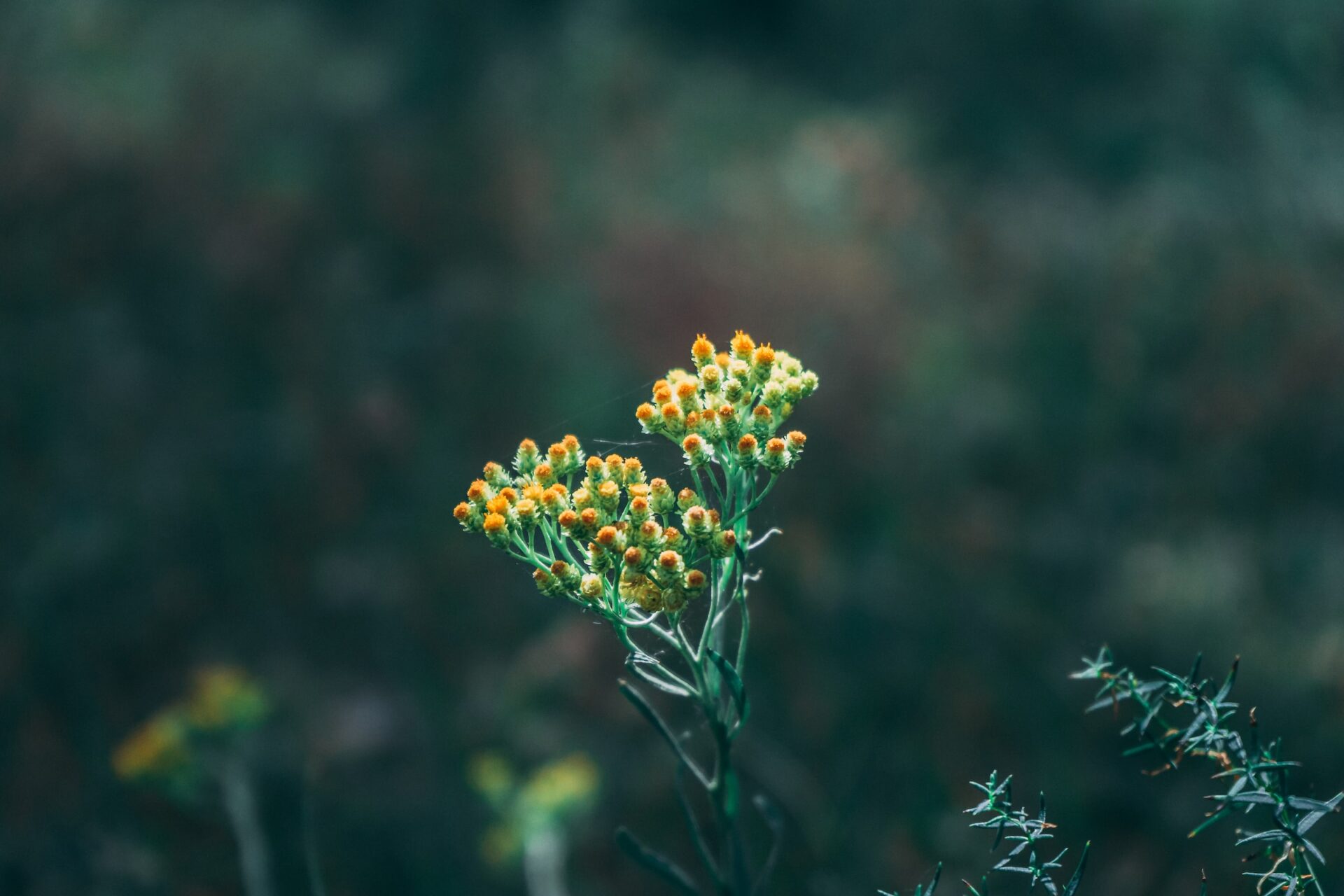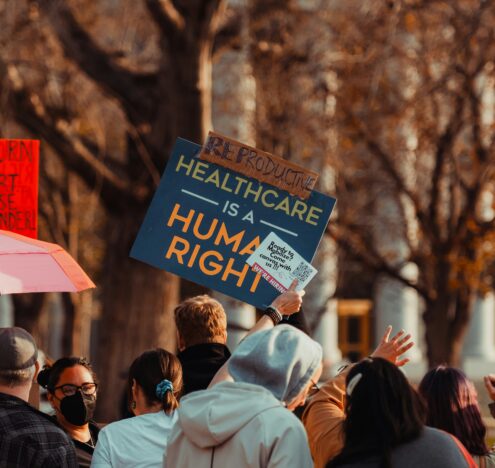By any measure, Russia’s war against Ukraine has been a humanitarian catastrophe. But beyond death, displacement, and human suffering, this war — like all wars — is a disaster for the environment.
Since 2014, and especially after Russia’s full-scale invasion of its neighbor last February, Ukraine’s fertile steppelands have been transformed into killing fields, its forests into unmarked mass graves, and gardens into slaughterhouses. Rivers and other bodies of water have been poisoned with industrial and military pollution.
Along the Dnipro River, the area around the Zaporizhzhia Nuclear Power Plant — Europe’s largest — was turned into a battlefield and ground zero for a potential nuclear catastrophe while warnings of the possible use of nuclear weapons have become alarmingly common.
The environmental consequences of the war on Ukraine are as extensive as they are grave, but monitoring impacts, confirming reports, and transmitting verified information have proven to be difficult. Aiming to counter misinformation and disinformation, a partnership of biologists, environmental activists, analysts, and journalists from Ukraine, Russia, Belarus, and the United States has formed the Ukraine War Environmental Consequences (UWEC) Work Group. They are collaborating to document the impacts of the war and disseminate the most accurate, carefully-vetted information obtainable in Ukrainian, Russian, and English.
Oleksii Vasyliuk, a wildlife biologist with the Ukrainian Nature Conservation Group and founding member of UWEC, explains how the group began with discussions between environmentalists, activists, and journalists from Ukraine, Russia, Belarus, and the United States. As a Ukrainian citizen, Vasyliuk says it has been a very positive experience working with like-minded people from distant and neighboring countries on behalf of a wilderness that doesn’t stop along man-made borders.
Even as many Ukrainian-Russian relationships have been strained or broken beyond repair, members of UWEC remain united by their humanity and commitment to environmental protection, peace, and human rights.
By May 2022, Vasyliuk and half a dozen UWEC partners working from at least half a dozen countries, such as Germany, Ukraine, Australia, Lithuania, Georgia, and the United States, were collecting, vetting, and writing environmental reports to be published as a resource for scientists, activists, journalists, and civil society. Officials from Ukraine’s Ministry of Environment and other government agencies cite UWEC materials on their websites and in their communications which, Vasyliuk says, indicates they recognize UWEC as a reliable source.
According to Vasyliuk, the biggest single direct environmental impact of the war is the destruction and pollution from the widespread use of munitions and other bombings. Explosives not only destroy ecosystems, vegetation, and animals, but cause erosion, disrupt hydrological regimes, and pollute the soil, water, and air with chemicals like sulfur that can return as precipitation, killing off roots, seeds, and microbiota in the soil.
The widespread bombing of Ukraine’s forests and steppeland threatens endemic species of plants and animals, some found only in a very narrow range measuring in the tens of hectares. Destruction of those habitats could mean the extinction of critically endangered species of feather grass, thistle, thyme, figwort, and other native plants.
Monitoring endangered species and protected habitats, Vasyliuk notes, has become all but impossible in most cases due to the ongoing combat and risk of landmines.
Vasyliuk expects Ukraine will suffer the effects of war pollution for years and believes many areas will remain “no-go” zones unfit for human habitation for a long time. But he believes Ukraine’s experience with the Chernobyl Exclusion Zone, now one of Europe’s largest wildlife areas, could prove helpful for informing future recovery and restoration efforts.
BOMBING THE WORLD’S BREADBASKET
UWEC member Angelina Davydova is an environmental journalist from St. Petersburg. A few weeks after Russia’s full-scale invasion of Ukraine, Davydova understood what it would mean for journalists in Russia, and so she fled, first to Turkey and then Germany, where she is now working freely and trying to build a new life.
Davydova says the environmental consequences of the war in Ukraine fall into two main categories: direct and indirect impacts. Unlike the bombing, fires, chemical pollution, and immediate physical damage that can be seen and measured, she’s focused on the indirect impacts, such as how the war affects global energy, food security, and the climate agenda. Davydova points to how the war has been used to justify everything from the expansion of wheat and fertilizer production and resource extraction in Brazil to an accelerated rush to exploit fossil fuel reserves in Africa.
With such widespread consequences affecting climate, environment, and human rights in places far from Ukraine, Davydova says it’s important to make reporting on the impacts of the war more understandable.
Davydova, who edits and translates for UWEC, says that because the group was formed by individuals who had collaborated before the war, there was a level of trust and a clarity of common goals that have helped the group work together even as Ukrainian members are under bombardment by the country of their colleagues.
When Davydova first fled Russia and saw images of the war on Turkish television, she was astonished to see her own country bombing a neighboring nation that she had visited and which looked so much like her own hometown.
She recalls traveling across the countryside of northern Ukraine in 2016, helping a friend with a research project. They visited tiny villages far from population centers during the autumn harvest. When they stopped to conduct interviews, locals insisted they join them to drink samogon, a Ukrainian homemade liquor served with black bread, lard, cucumbers, and sweet watermelon.
“We heard so many stories from the older people…from that part of Ukraine,” Davydova recounts fondly. “It made me feel like I had discovered a completely new country and completely new region.”
TAKING A HEAVY TOLL
One of UWEC’s founders, Eugene Simonov, a Russian-born environmental activist, now lives in Australia, where his work focuses on global river conservation policies. For his activism, Simonov has been labeled a “foreign agent” by the Russian government.
In the early days of Russia’s expanded war in Ukraine, Simonov believed he could combine his skills as an analyst with journalistic techniques to collaborate with Belarusians who were already collecting environmental news for a war digest. At the same time, he began working with Jennifer Castner, an American specializing in Russian language services in the environmental and Indigenous rights fields.
In part, Simonov says, UWEC grew out of a sense of despair and members’ desire to apply their own capabilities in a meaningful way that would increase understanding and foster an exchange of ideas and possible solutions while building awareness of the lesser-known environmental consequences of the war.
Simonov says it’s also important to consider the broader environmental costs associated with post-war green reconstruction and to develop more sustainable, forward-looking solutions in order to avoid destroying what remains in nature. With so much of Ukraine’s industry and infrastructure in ruins, difficult decisions will need to be made when rebuilding. For example, Simonov wonders how Ukraine’s agriculture sector can recover with an estimated roughly one-third of the country mined or bombed and infrastructure weaponized.
Beyond Europe, Russia’s war on Ukraine also weakens environmental oversight, monitoring, and international cooperation and agreements.
Another environmental issue exacerbated by the war, Simonov says, is what UWEC calls “an unprecedented wave of wall building in Europe.” This includes spreading man-made barriers like razorwire-topped fencing intended to slow or stop the flow of migrants and smugglers. In reality, the greatest disruption may be to wildlife migration as the practice accelerates along the borders of Ukraine, Belarus, Poland, Russia, Lithuania, and elsewhere.
Beyond Europe, Russia’s war on Ukraine also weakens environmental oversight, monitoring, and international cooperation and agreements. Simonov says that in Mongolia, the government is framing its desire to develop hydropower as a means to achieve energy independence from Russia, pointing to what he calls “very dangerous hydropower plants” and the deterioration of human rights and criminal persecution of Mongolian environmental defenders. Additionally, critics charge such projects threaten water sources for pastoralist communities in remote, ecologically-sensitive regions.
“We just had COP27, and you could argue that many decisions [were not] made…because of uncertainties reinforced by the war,” Simonov says, referring to the 2022 UN Climate Change Conference in Egypt in October. Addressing the climate summit by video in November 2022, Ukraine’s President Volodymyr Zelenskyy told world leaders that without peace, there could be no effective climate policy.
Simonov says the war stands out for its impact on international policies with severe repercussions on commodity markets and natural resources. As the war leads to soaring energy prices and Ukrainian citizens have less access to everyday goods, alternatives must be found. “The easiest way to compensate for hardships is to take another piece of nature and transform it into commodities,” Simonov says, adding that this trend must be understood as part of a greater process and not a standalone event.
Consequences of the war can also be seen in stalled cooperation between the World Heritage Committee and Arctic Council, which have not been functioning because, until recently, Russia chaired both bodies. The war in Ukraine, Simonov believes, needs to be understood “in terms of changing relationships in a multitude of very important environmental interactions at a very critical time. Because war doesn’t come in a vacuum. It’s exacerbated by the previous several years of latent crisis and then the hit of the pandemic,” Simonov says. “In this respect, the war has had outstanding secondary environmental impacts.”
CROSS-BORDER CRACKDOWN
After oppressive crackdowns and widespread imprisonment of political, environmental, and civil society activists in Belarus, Aleksei Ovchinnikov, a Belarussian journalist and environmental activist, fled to neighboring Ukraine in 2021. There, he received a warm welcome from his Ukrainian counterparts. By chance, Ovchinnikov was traveling in nearby Sakartvelo (Georgia) when Russia began its invasion of Ukraine, and today he remains in Georgia.
Editing and translating UWEC materials for the website, Ovchinnikov monitors the war in Ukraine remotely, as does a second Belarusian environmental activist, Irina Sukhy, who also escaped from Belarusian persecution and now works from Lithuania, covering the environmental consequences of the war. Among the war’s many threats to European wilderness, Ovchinnikov points to conservation efforts to save Polesia, a vast intact floodplain rich in biodiversity that connects Ukraine, Belarus, and Poland with forests and wetlands. Known as “Europe’s Amazon,” Polesia is called a “haven for threatened species,” but it’s also being devastated by Russian invasion forces.
“For Europe, this region is very important, and many Ukrainian and Belarusian environmental organizations are working together to save this territory,” Ovchinnikov says. “But right now, this work has stopped, mostly because of the war and also the Belarusian regime.”
He hopes more people will take interest in these issues and says it is important to convey how war affects nature. “After the end of the war, we will also have maybe the biggest problems with the environment because in Ukraine, many cities will be rebuilt, and people will use resources, and I am sure they will take it from nature,” Ovchinnikov says.
Jennifer Castner, an American UWEC co-founder and longtime Russian translator active in environmental and human rights causes, says that having members of the Ukraine Nature Conservation Group working on the ground in Ukraine allows them to gather raw data on the war’s impacts and to track media and government coverage and assess its validity.
“They use their network to attempt to groundtruth where possible and as well as their own expertise and archives. They know that each specific instance is difficult or currently impossible to completely verify, but they have sufficient experience and a trusted network to have a really good understanding of what is likely correct and what is not,” Castner says.
Speaking in a video call from his home 30 kilometers south of Kyiv between the frequent energy cuts and missile strikes, Vasyliuk says that one thing that makes UWEC unique is its multinational composition of people from nations at war with each other. Even as many Ukrainian-Russian relationships have been strained or broken beyond repair, members of UWEC remain united by their humanity and commitment to environmental protection, peace, and human rights.
“We are working together in UWEC to find and share information that shows exactly what’s going on. There are good people who are working for it,” Vasyliuk says. “For me it’s valuable that we’re doing it together.”
UWEC Work Group member Jennifer Castner provided language assistance for this article.
Jon Letman is a Hawaii-based independent journalist covering people, politics, and the environment in the Asia-Pacific region.





















